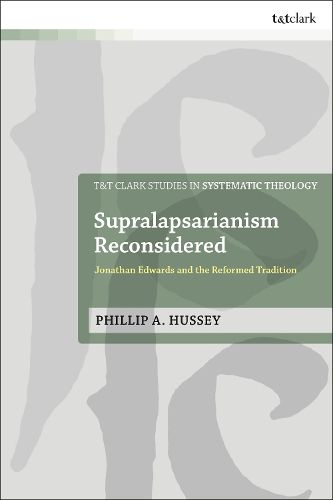Readings Newsletter
Become a Readings Member to make your shopping experience even easier.
Sign in or sign up for free!
You’re not far away from qualifying for FREE standard shipping within Australia
You’ve qualified for FREE standard shipping within Australia
The cart is loading…






Phillip A. Hussey examines the scholarship of Jonathan Edwards and interrogates the relationship between Christ and the decree within Reformed Theology; and reveals the contemporary theological significance of supralapsarian Christology.
In a late notebook entry, Jonathan Edwards offered a programmatic statement on the relation between Christ and predestination: "In that grand decree of predestination, or the sum of God's decrees...the appointment of Christ, or the decree respecting his person...must be considered first." This work unpacks the scope of Edwards's statement, both in terms of setting forth an interpretation of Edwards's own theology on the relation between Christ and the decree, as well as drawing out the larger insights of Edwards's reasoning for current theological reflection.
$9.00 standard shipping within Australia
FREE standard shipping within Australia for orders over $100.00
Express & International shipping calculated at checkout
Stock availability can be subject to change without notice. We recommend calling the shop or contacting our online team to check availability of low stock items. Please see our Shopping Online page for more details.
Phillip A. Hussey examines the scholarship of Jonathan Edwards and interrogates the relationship between Christ and the decree within Reformed Theology; and reveals the contemporary theological significance of supralapsarian Christology.
In a late notebook entry, Jonathan Edwards offered a programmatic statement on the relation between Christ and predestination: "In that grand decree of predestination, or the sum of God's decrees...the appointment of Christ, or the decree respecting his person...must be considered first." This work unpacks the scope of Edwards's statement, both in terms of setting forth an interpretation of Edwards's own theology on the relation between Christ and the decree, as well as drawing out the larger insights of Edwards's reasoning for current theological reflection.